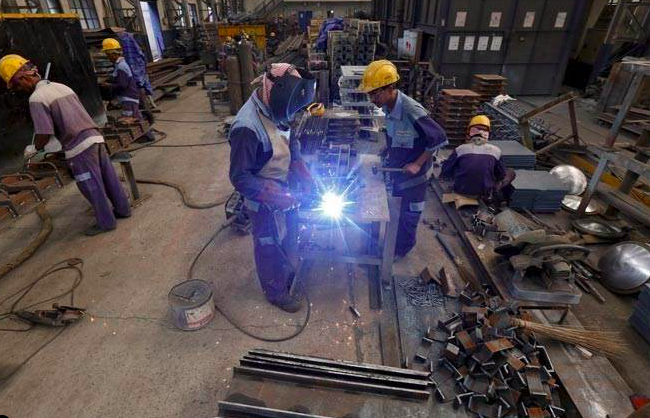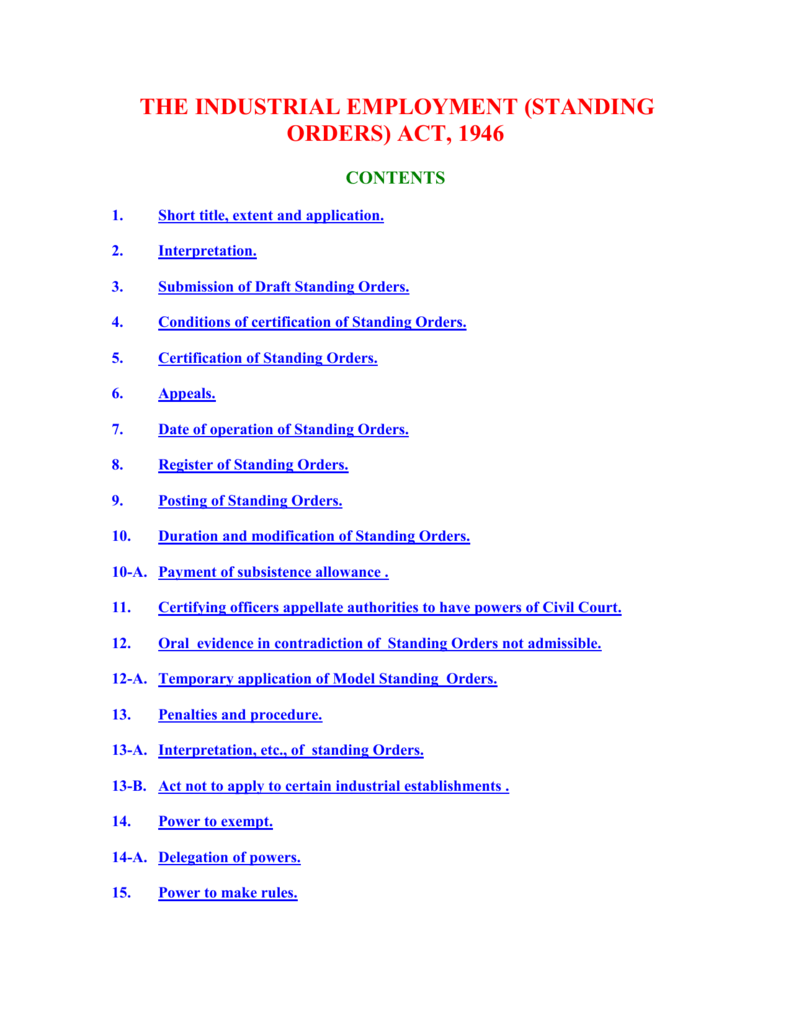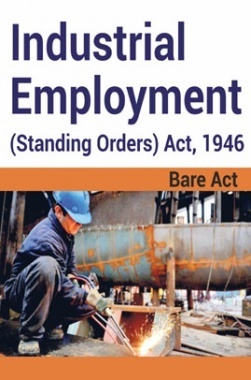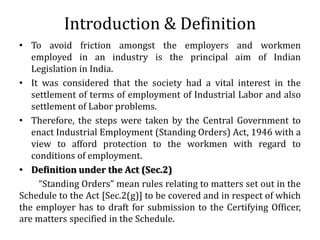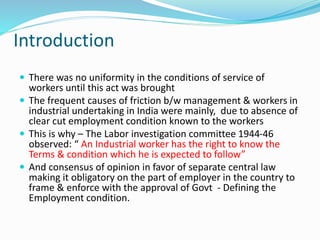The Industrial Employment (Standing Orders) Act, 1946 is a labor legislation in India that applies to industrial establishments employing 100 or more workers. The Act aims to regulate the terms of employment and conditions of service in such establishments by defining the duties, responsibilities, and rights of both the employer and the employee.
Under the Act, every industrial establishment is required to define, certify, and display the "standing orders" which contain the rules and regulations governing the employment of workers in the establishment. These standing orders cover a wide range of topics such as hours of work, leave, holidays, wages, discipline, and grievances. The standing orders must be approved by the appropriate government authority and must be in accordance with the provisions of the Act.
One of the main objectives of the Act is to provide clarity and certainty in the employment relationship between the employer and the employee. By specifying the terms and conditions of employment in a clear and transparent manner, the Act helps to avoid disputes and misunderstandings between the two parties.
The Act also provides for the establishment of a Standing Orders Committee, comprising representatives of both the employer and the employee, to resolve disputes that may arise in the interpretation or application of the standing orders. In case of any disagreement, the committee can refer the matter to the Industrial Court for a final decision.
In addition to regulating the terms of employment, the Act also requires the employer to maintain certain records and registers related to the employment of workers. These records include a register of employees, a register of wages, and a register of overtime.
Overall, the Industrial Employment (Standing Orders) Act plays a crucial role in ensuring fair and transparent employment practices in the industrial sector in India. It helps to protect the rights and interests of both the employer and the employee and promotes industrial harmony and stability.
